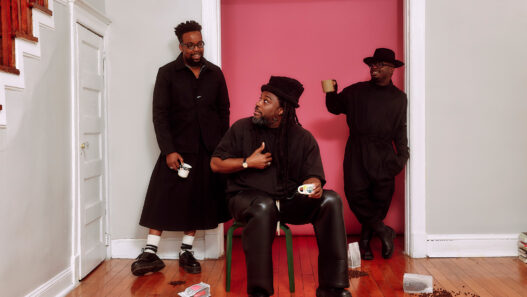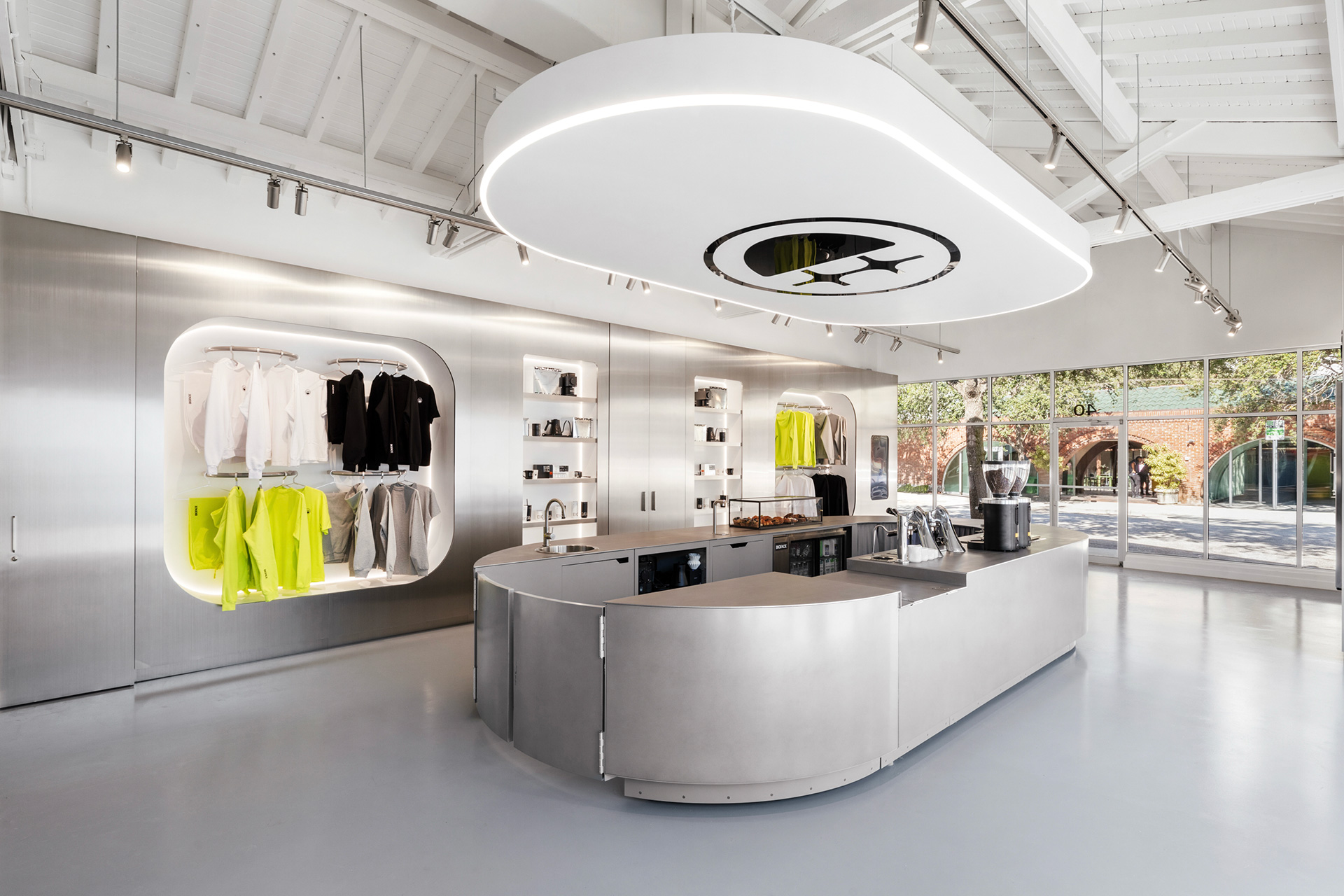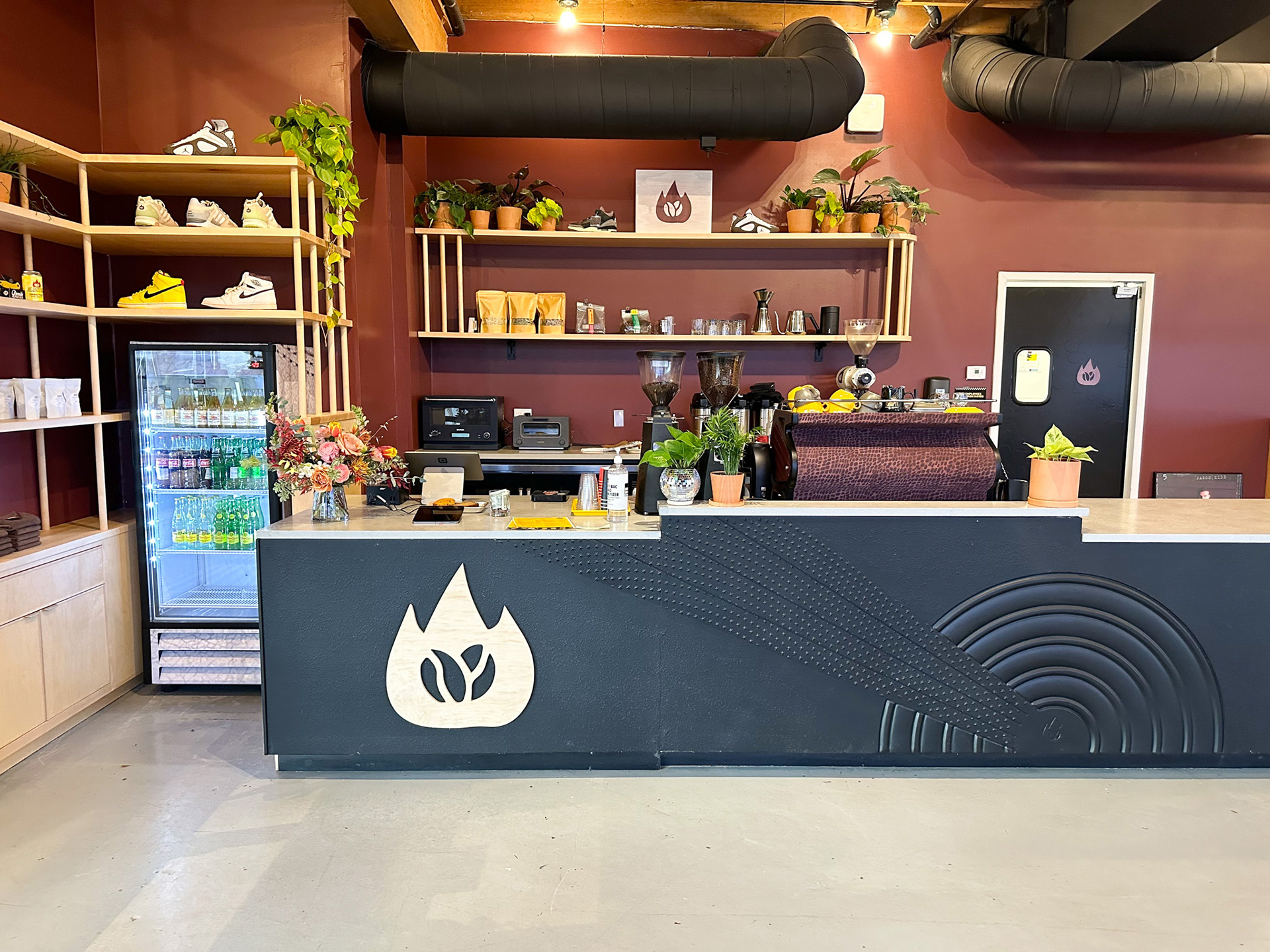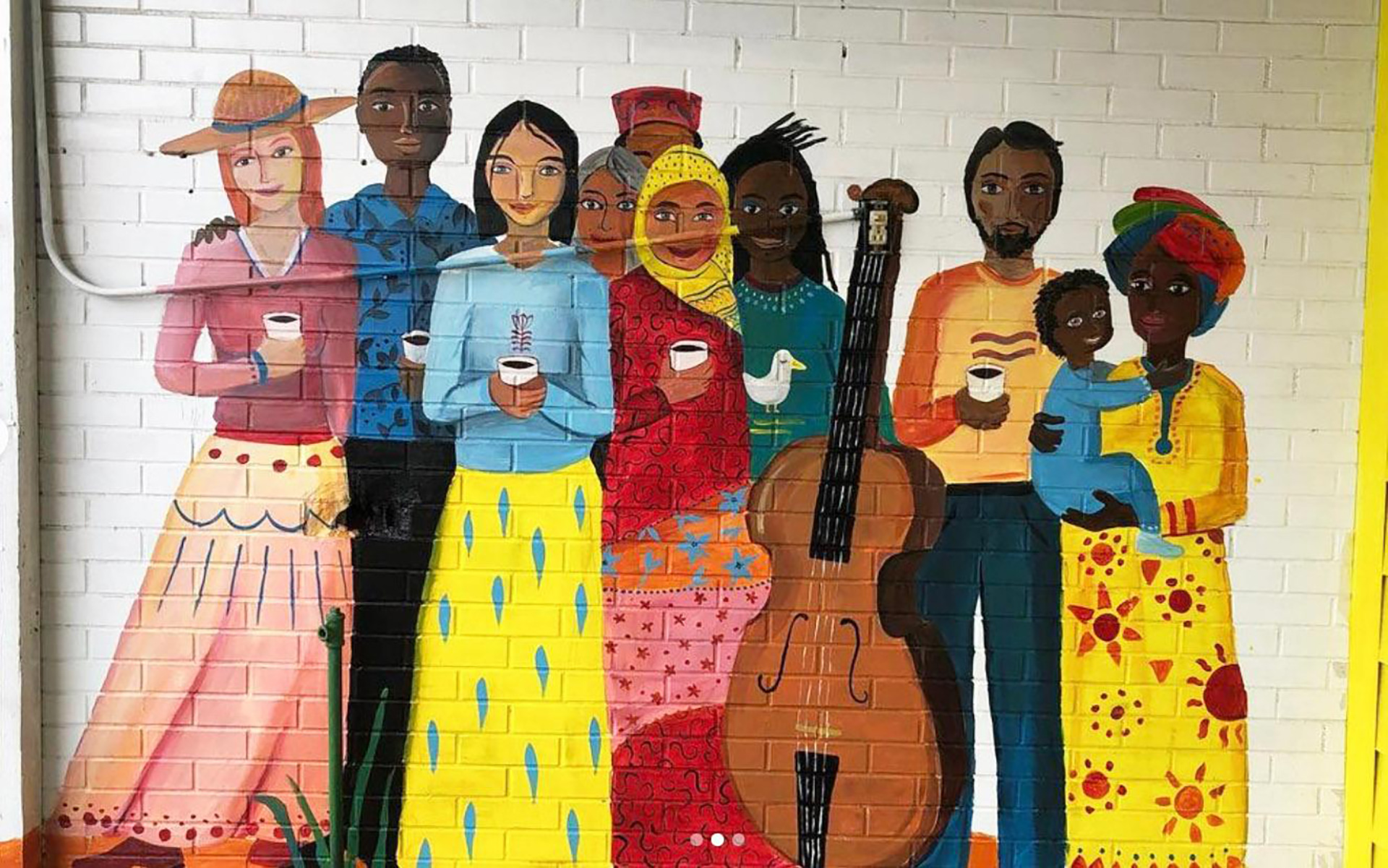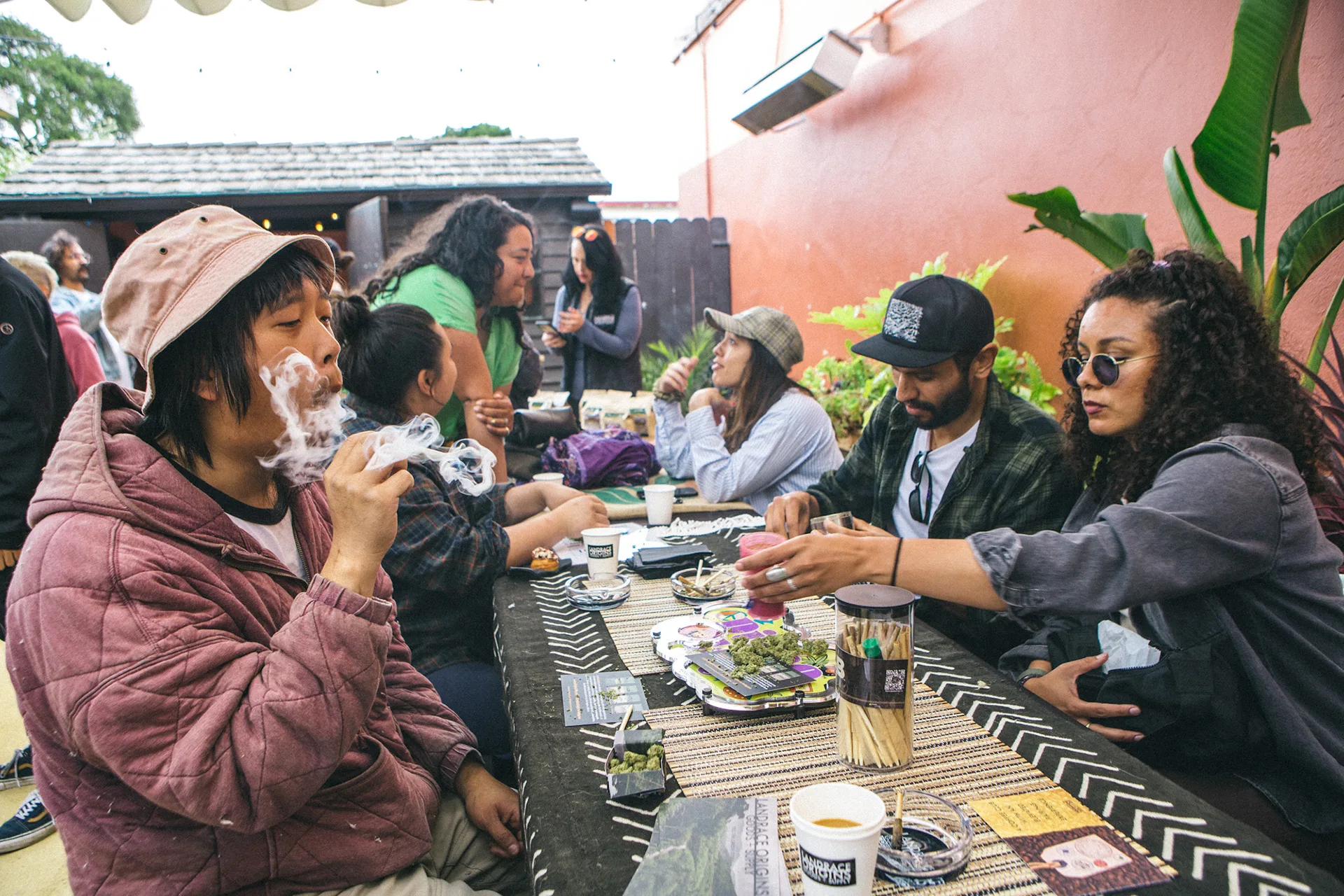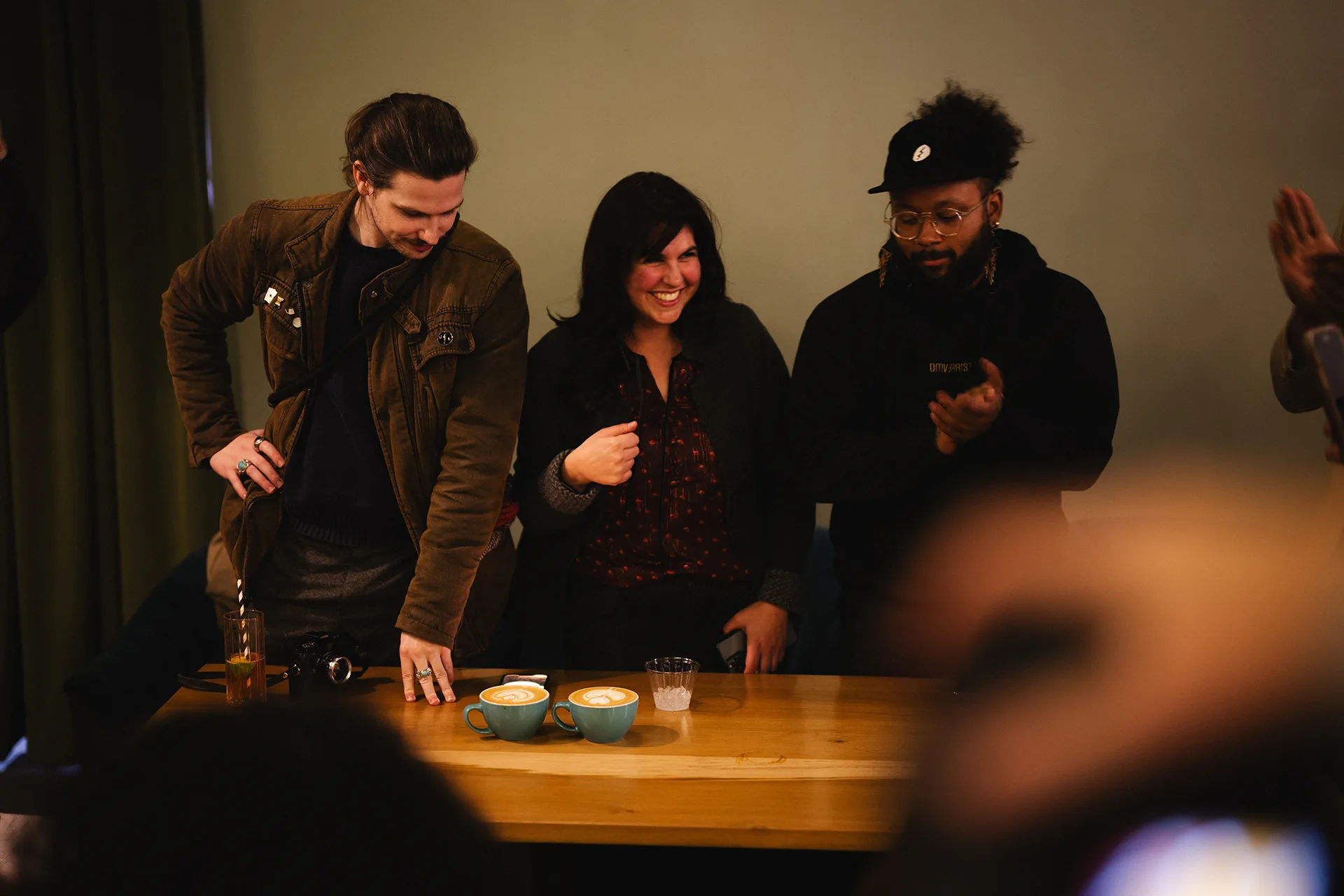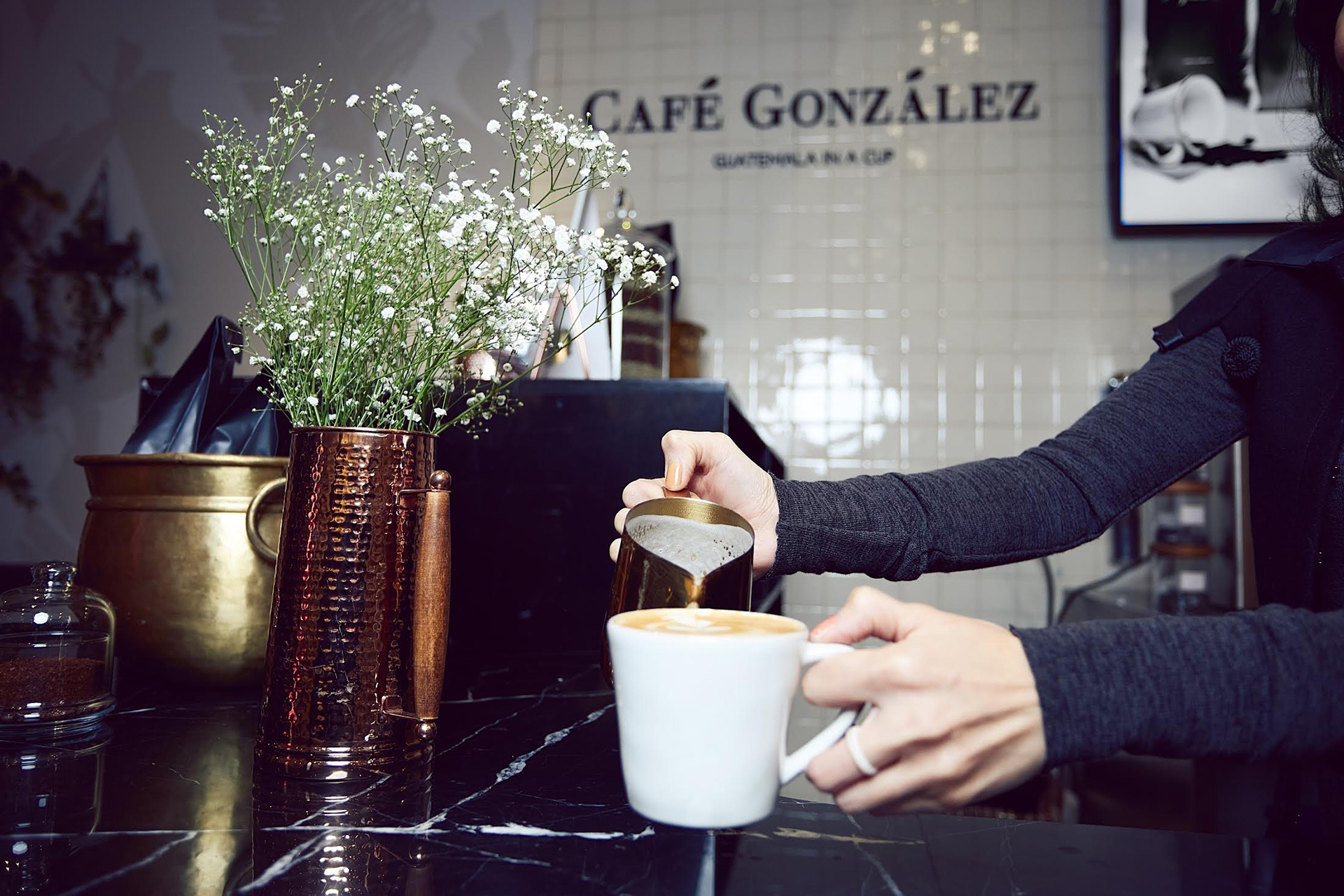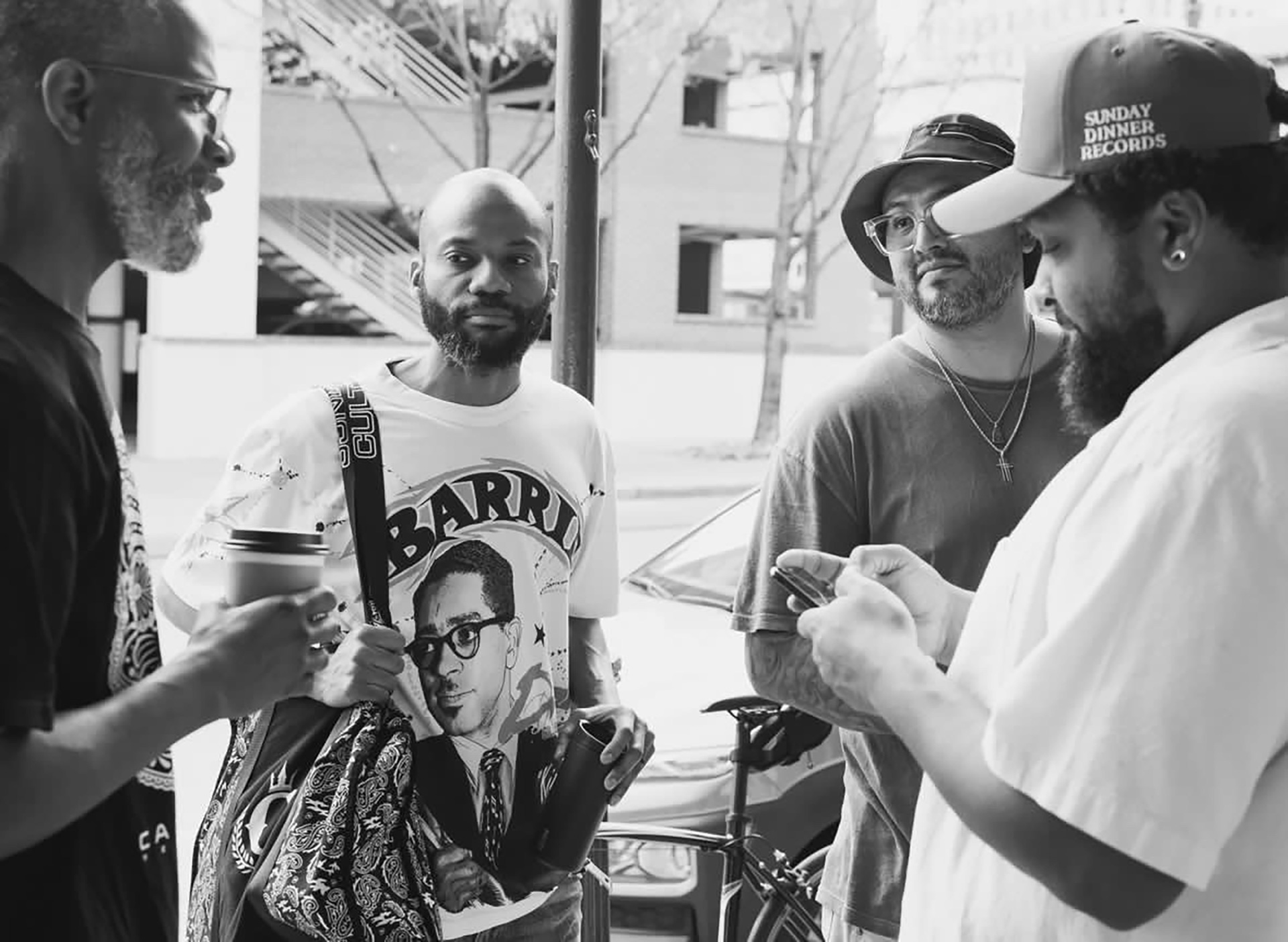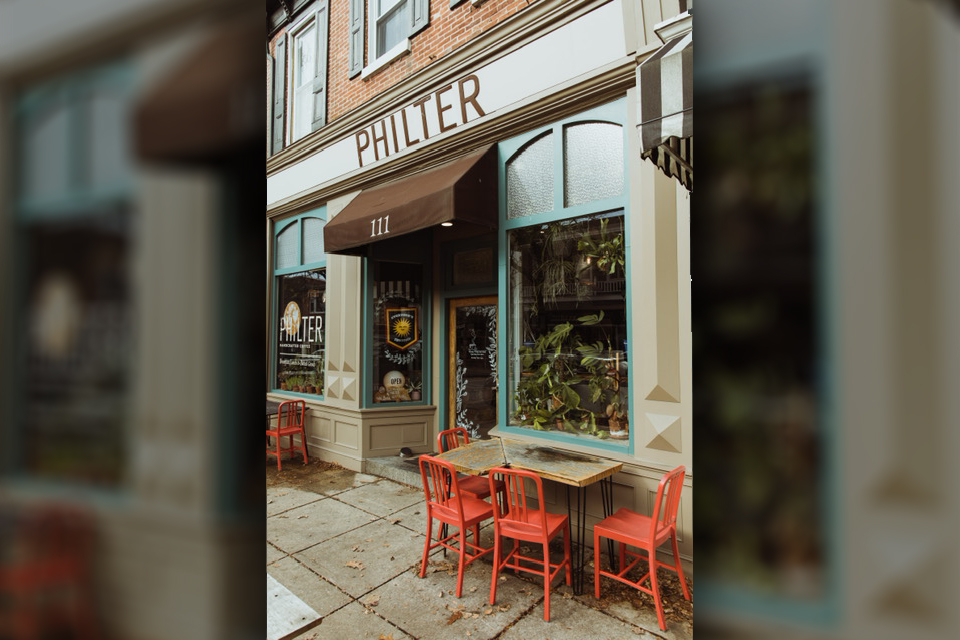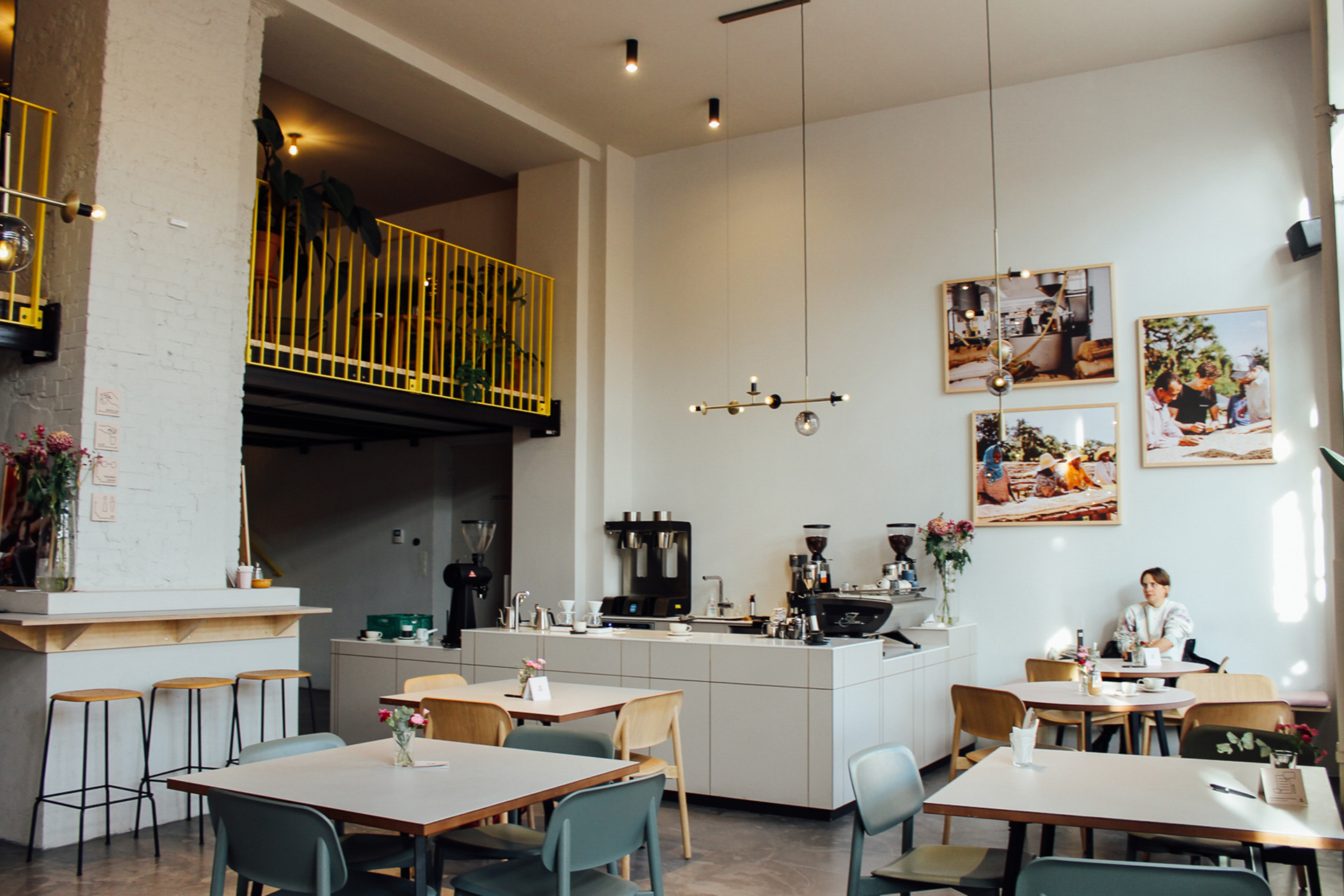
Many coffee businesses start off as simple brick-and-mortar cafes, eventually (and hopefully) working their way up to an international name with a worldwide online clientele. Coffee Circle, a 10-year-old Berlin-based company, did it backward.
The company’s founders, Martin Elwert, Robert Rudnick, and Moritz Waldstein-Wartenberg, quietly built and established their roastery and extensive digital community from behind closed doors. On Berlin’s Wedding District street of Lindower, the wafting smell of roasted coffee has been a presence for five years. Yet the enticing trail never before led to a place to savor and enjoy that same coffee. Away from the public eye, Coffee Circle operated a large roastery in the back of the building complex, quietly shipping out fresh beans all over Germany, Switzerland, and beyond. Until the summer of 2019, the sleepy street played host only to residents, a few temporary metal fences, a dusty candy shop, and a fishmonger in front of the coffee headquarters. “But once the fishmonger left,” recalls Elwert, “there was no question about [whether] we should open our cafe here.”
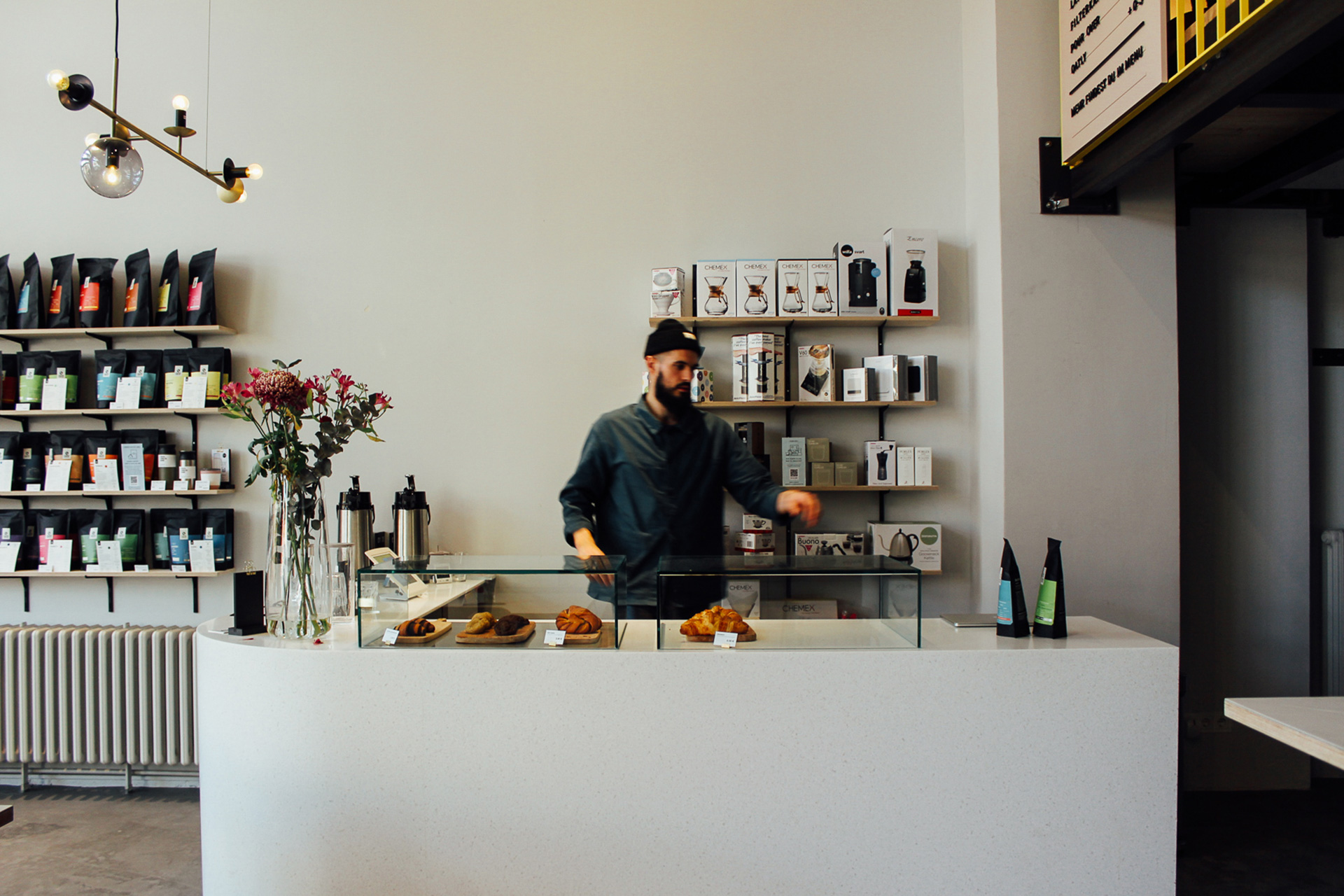
Coffee Circle’s choice to open “in real life” was a big step for the company and something that Elwert and his team wanted to do carefully. The company was established with a mission to trade and sell Ethiopian specialty coffee to improve to the lives of Ethiopian coffee farmers—not as a charity organization, but via the power of entrepreneurship, says Ersin Koray, the company’s head of retail. They found huge success online, shipping to both individual customers and large establishments. (And their ability to thrive in that landscape would prove to be a blessing, as COVID-19 forced closure of the cafe space from March to May.)
Since its inception, Coffee Circle has achieved impressive goals such as building coffee wet mills, an elementary school, and developing clean water systems with the farmers with whom they have worked over the years. From their sales, Coffee Circle invests one Euro per kg coffee sold back at origin.
The choice to move from online to on-location, according to Koray, was “because coffee is the most social drink on the planet. For the ultimate experience, we believe we need to serve it.” And why wait so long to open? “Nine years ago, the specialty coffee scene was nowhere near to its development as it is today in Germany,” recounts Elwert. “Today, Berlin seems as the only hub where it would be possible to grow this development and experiment with new trends and products.”
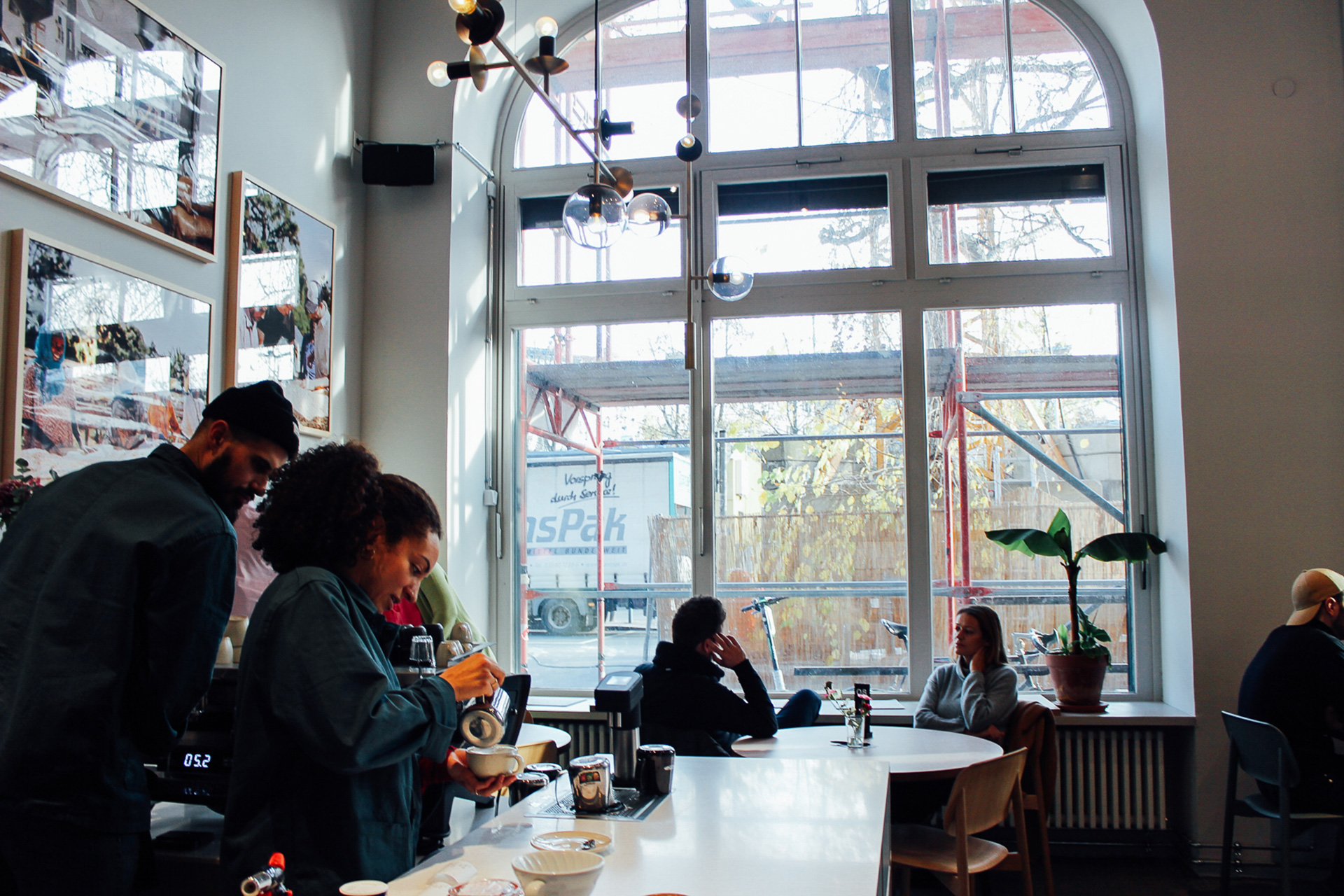
Elwert and his team opened their first cafe location in the borough of Wedding, becoming one of the first specialty coffee shops in the northwestern inner area of the city. Boasting magnificent two-story windows, the shop’s natural light pours over the brewing equipment and tables all year long. The walls are adorned with personal photos from origin trips, and brightly colored fixtures, sharp against the pale pastels of the rest of the space. Two staircases lead to a hidden SCA training space and kitchen, another to a plant-covered balcony to relax.
Two long service bars sit on adjacent sides of the room. A two-group Kees Van Der Westen Slim Jim espresso machine with Mazzer and Mahlkönig grinders on one, retail and baked goods on the other. With a fully functioning roastery in the back building, there are plenty of choices on both the menu and the shelves. African coffees feature heavily as choices to drink in or take home.
In the COVID era, the company has had to adapt. Operations in the cafe fell silent at the end of March, but reopened at the beginning of May in accordance with safety rules set out by the local government body. In the meantime, the team reorganized the cafe’s layout and transformed the front of the space to sell local partners’ merchandise, including wine and thrifted clothing. The cafe switched out its sit-in menu for easy takeaway options, like batch brew and bags of coffee to go. The team created a new signature sandwich, brimming with ingredients sourced from a range of local producers based out of the famous Markthalle Neun. The addition has proved so popular with the local community, Coffee Circle plans to keep it on the menu once they can properly open tables to customers in August.
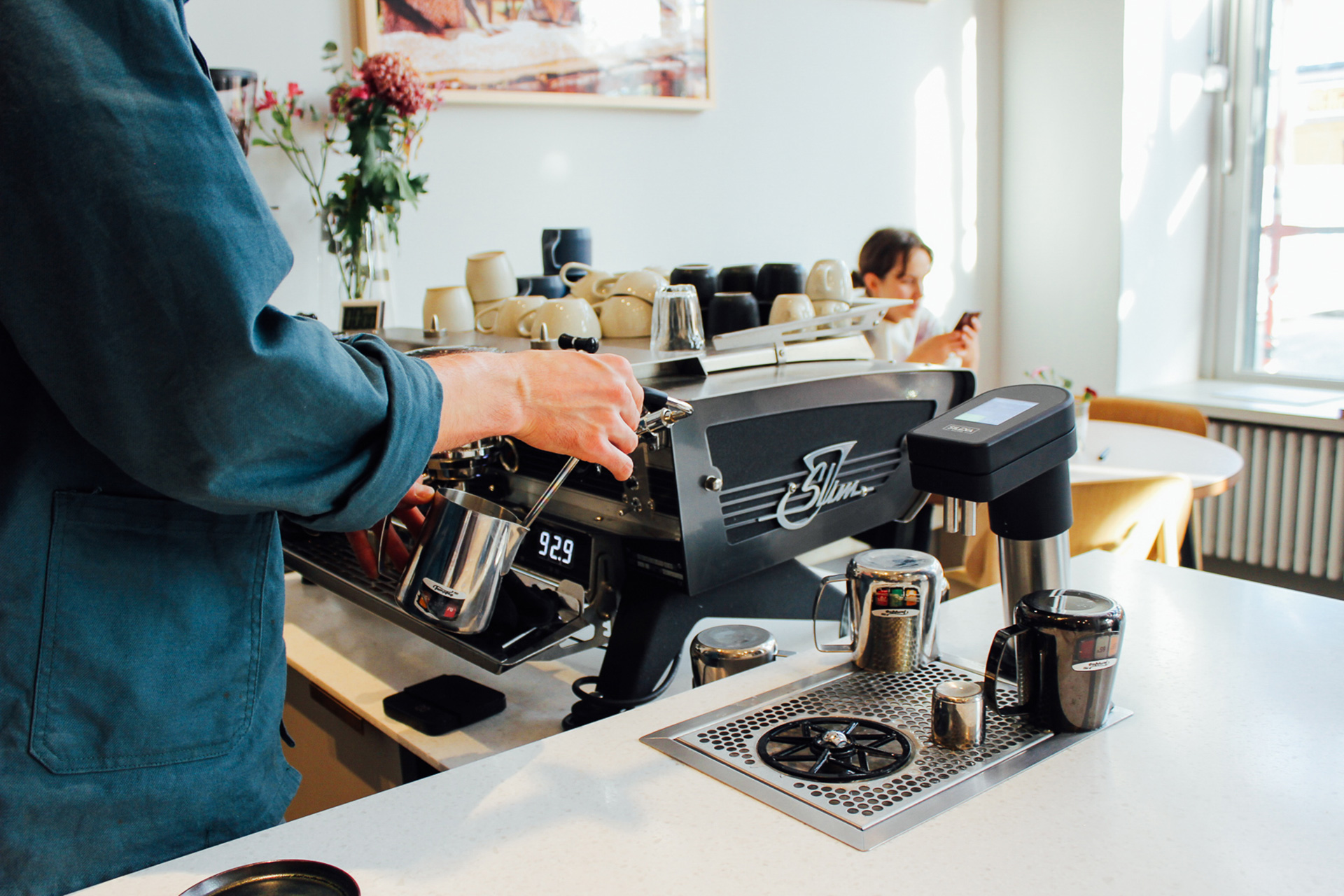
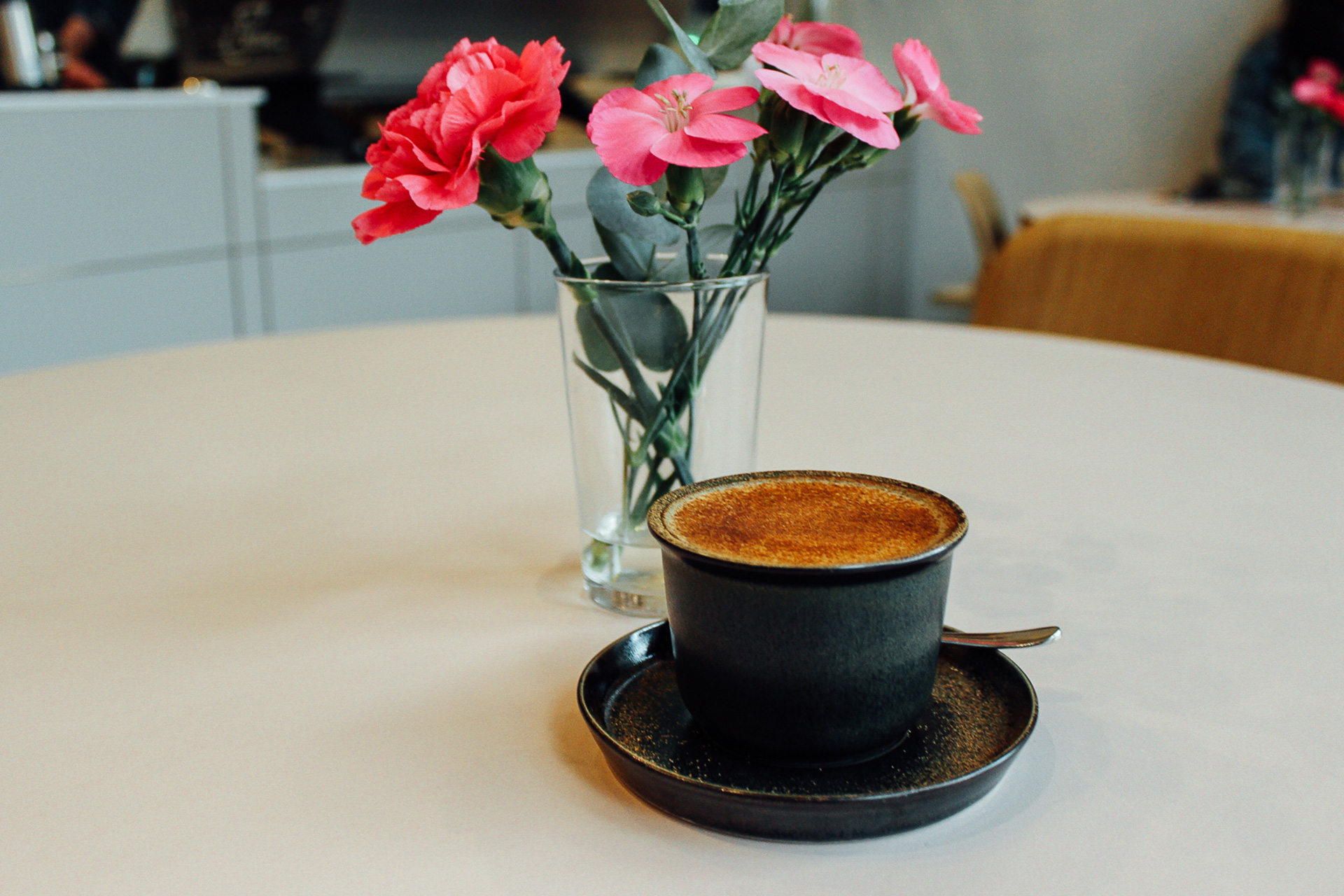
Once it reopens in full, the focus will return to approachability—a sensitive topic for the established but transforming city. The Coffee Circle was carefully designed so as not to intimidate whoever decides to come through the doors. It is not meant to dazzle, but to create a comfortable engaging space for locals and beyond. “It is neighbors, young and old,” recalls Koray, “but also people traveling a bit to get their fresh coffee directly from the roastery.”
Susie Kealy (@susiebootz) is a freelance journalist and coffee professional based in Berlin. Read more Susie Kealy for Sprudge.










